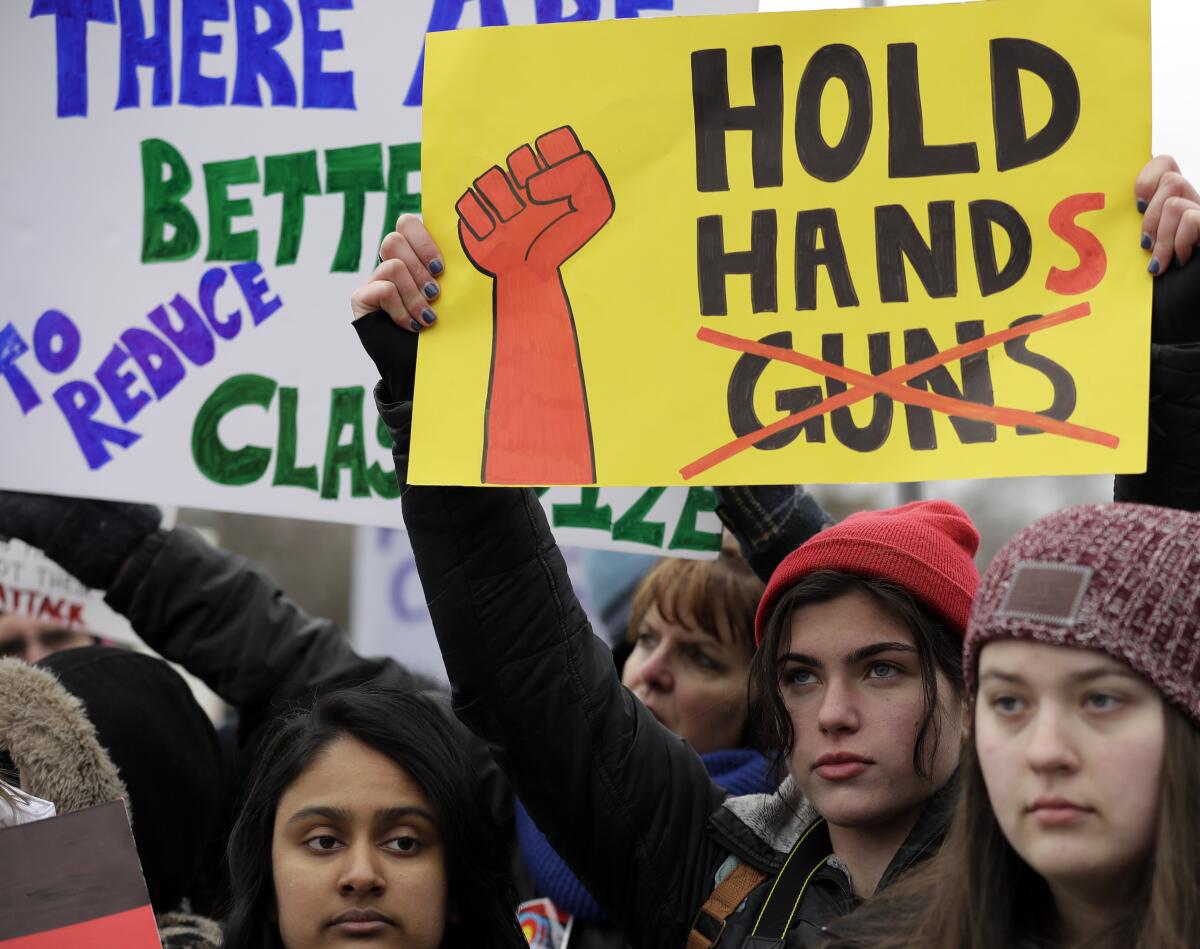Op-Ed: Thinking of buying a gun for self-defense? Don’t do it

- Share via
During my more than 25 years as an emergency medicine physician, I treated hundreds of patients with gunshot wounds. I treated criminals who shot each other. I treated gun owners who killed their family members in drunken rages. I pronounced dead suicide victims who shot themselves with an easily accessible handgun in their home.
Yet in all those years of emergency medicine, I never treated a single patient who was shot by a law-abiding citizen in self-protection. Not one.
Multiple reputable studies and surveys bolster what I observed: Choosing to have a gun in your home, because it will keep you safe, is a myth. And a deadly one at that.
Yet surveys of gun owners show they consistently cite self-protection as the primary reason for 67% of gun purchases. Suppose you have the same fears and obtain a handgun. Which of these two scenarios is more likely?
Choice one: That gun you just bought will save your life from criminals or home invaders. This is known as defensive gun use.
Choice two: That gun will be used to kill you or a family member, whether that means the murder of a family member, an accidental shooting or suicide.
It’s choice No. 2 by a landslide. In 2017, for example, according to FBI reports, for every justifiable homicide — a defensive gun-use death — there were 35 criminal homicides. And that doesn’t even include the thousands of deaths each year by suicide or the accidental deaths that occur when there is a handgun in the home.
After the recent mass shootings, Mike Huckabee points the finger at a lack of religion, not at guns. Social science proves him and other Christian moralizers wrong.
Where did this “a gun will keep you safe” myth originate? In my estimation, it began with the powerful U.S. gun lobby. Criminologist Gary Kleck and economist and gun rights advocate John R. Lott Jr. are often quoted on the subject. Both rely on surveys regarded as highly flawed to claim that over 2 million gun-use deaths occur each year. Yet reputable analysis put such deaths at around 2,000 a year, not 2 million.
Kleck also suggests that hundreds of thousands of criminals are shot annually by law-abiding citizens. Not surprisingly, there appears to be an absence of hospital records to validate this figure.
The Harvard School of Public Health reports that guns are not used millions of times in self-defense, most purported self-defense uses are to intimidate and frighten intimates — not to thwart crime — and few criminals are shot by law-abiding citizens.
On its website, the school refers to a survey in which five criminal court judges from different states were asked to examine 146 self-reported accounts of defensive gun use. The judges determined more than half of the gun usages were illegal, even assuming that the respondent described the event honestly and that the person had a legally owned gun.
In an analysis of victims of gun violence from 2007 to 2011, the Department of Justice found that people were nine times as likely to be injured or killed by a firearm rather than protected by them.
But enough of statistics. Let’s just use some common sense. What’s more likely? That someone will break into your home and threaten your family, or that a member of your family, in a moment of anger or drunkenness, will resort to wielding that same weapon against you? Or that in a moment of despair, a loved one will turn that easily accessible gun on themselves? Or that your 5-year-old, who knows exactly where you keep your gun, will accidentally shoot himself?
Certain behaviors — not wearing a seat belt and shoulder harness, or smoking cigarettes, for example — increase your risk of injury and death. Having a handgun in the home is no different. The presence of a gun in your home dramatically increases the risk of homicide, suicide and accidental deaths.
Be responsible and be wise. Don’t buy into the myth of owning a gun for self-defense. The life you save may be your own.
Steven J. Sainsbury is a hospice and geriatric physician in San Luis Obispo.
More to Read
A cure for the common opinion
Get thought-provoking perspectives with our weekly newsletter.
You may occasionally receive promotional content from the Los Angeles Times.











